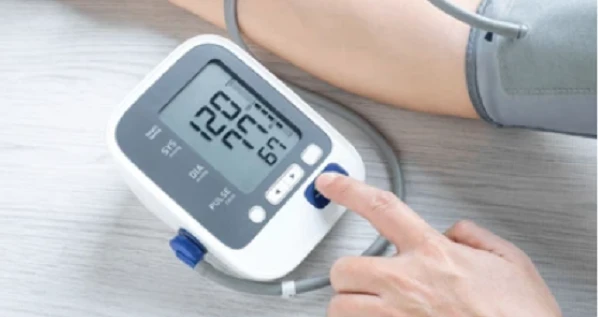Master - Doctor Ly Hoang Anh, Department of Pediatric Cardiac Surgery, University of Medicine and Pharmacy Hospital, Ho Chi Minh City, said that the normal resting heart rate of an adult is about 60-100 beats/minute. A slow heart rate is below 60 beats/minute and a fast heart rate is above 100 beats/minute. Therefore, a fast or slow heart rate is not good for your health.
According to experts, the ideal heart rate for a healthy heart is 60-80 beats/minute. When your resting heart rate is greater than 100 beats/minute or less than 60 beats/minute or you have symptoms such as fainting, dizziness, shortness of breath or palpitations... you should consult a specialist.

The ideal heart rate for a healthy heart is 60-80 beats/minute.
High blood pressure can cause myocardial infarction, cerebral hemorrhage
Besides heart rate, according to Dr. Tran Hoa, Deputy Head of Interventional Cardiology Department, University of Medicine and Pharmacy Hospital, Ho Chi Minh City, blood pressure is an important indicator that affects the cardiovascular system.
A person is diagnosed with high blood pressure when one of the two systolic blood pressure readings is 140 mmHg or higher, or diastolic blood pressure is 90 mmHg or higher.
Although diagnosing high blood pressure is very simple, each person can proactively detect high blood pressure by measuring their blood pressure at home or going to the nearest medical facility. However, data shows that many patients do not know they have high blood pressure. People are still subjective, do not pay attention to measuring blood pressure and proactively screening, so the number of patients diagnosed is still low.
For people who have been diagnosed with high blood pressure, most patients do not comply with treatment because the disease rarely causes typical symptoms. If not detected and treated effectively, high blood pressure can cause myocardial infarction, cerebral hemorrhage, cerebral infarction and many other complications to the heart, eyes, kidneys, blood vessels, etc.
A worrying issue is that up to 50% of people diagnosed with high blood pressure do not comply with treatment. In addition, many people, despite being diagnosed and treated, still do not reach their target blood pressure (below 140/90 mmHg).

For people with high blood pressure, the target blood pressure level should be below 140/90 mmHg.
The cause is often due to the patient not complying with medication and having an inappropriate lifestyle (salty eating habits, lack of exercise, overweight, obesity, etc.). Especially in drug treatment, patients often forget to take medication, do not combine medications to control risk factors or do not take enough medication as prescribed by the doctor.
Instructions for measuring blood pressure correctly
According to Dr. Hoa, the latest recommendation of the Hypertension Association - Vietnam National Cardiovascular Association on the diagnosis and treatment of hypertension states that patients need to proactively measure their blood pressure properly at home. This is a simple and convenient method to monitor health, contributing to better blood pressure control.
Before measuring, check the machine to ensure it is always working properly, read the instructions for the machine you are using carefully, especially the instructions on the position and tightness of the cuff. Choose a suitable cuff and wrap it around the arm, the cuff is placed at the level of the heart. The blood pressure monitor must be calibrated every 6 - 12 months to maintain accuracy.
Keep your body still, sit down and breathe regularly, feet completely touching the ground and legs not crossed. Rest for at least 15 minutes, do not drink coffee, alcohol, stimulants, or smoke before.
Source link
































































































Comment (0)